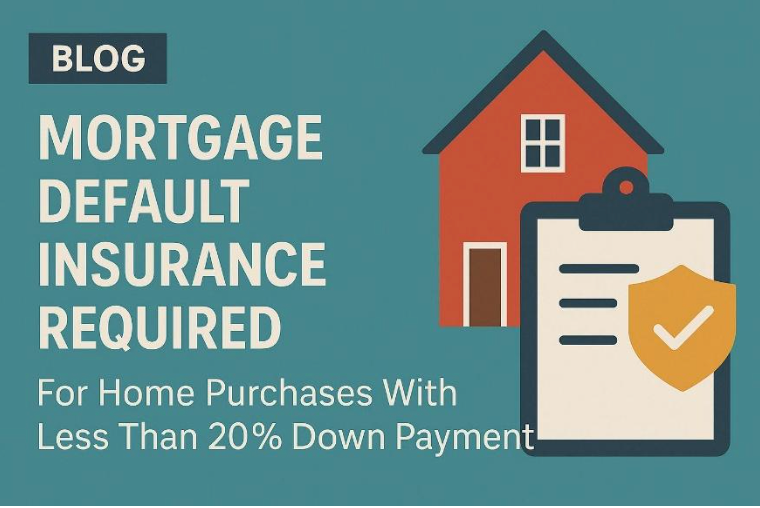What is the difference between a Mortgage Broker & a Mortgage Specialist (hint – specialists work for the bank)!!
With the importance of real estate in Canada, it is vital to understand how the various professionals in the sector operate when buying a home.
Sooooooo… what is the difference between a Mortgage Specialist & a Mortgage Broker?
On the surface they sound the same
- They both arrange mortgages
- They both can offer advice and help you select a mortgage, right?
WRONG!!! There are many differences… Let’s check some of them out!
- A Mortgage Broker works for you!
Their role is to act as a link between you and the lenders so that you do not have to spend your valuable time learning about mortgages and shopping around for the perfect mortgage. Mortgage brokers do the legwork and negotiate on your behalf for lenders. They are your point of contact for everything related to your financing your home.
- Bank specialists are employed and paid by the bank and work on the bank’s behalf.
- A Mortgage Broker can work with many different lenders
across Canada, rather than working for one financial institution. Therefore, Mortgage Brokers can offer you more choices with competitive rates and terms including: Big banks, Credit Unions, Trust Companies, Monoline Lenders (broker only banks), private lenders.
- Usually Mortgage Specialists only have access to their lender’s products. In a typical situation, homeowners could end up with a higher interest rate than other institutions. This occurs because the homeowner must negotiate for themselves and Mortgage Specialists are usually paid according to the rate they sell you.
- A Broker must successfully complete a Provincially regulated Mortgage Broker course and exam.
(
In BC, Mortgage Brokers must be licensed by
FICOM
) They continue to maintain their good status to keep that license by taking professional development education courses
- Bank specialists are not licensed and require no formal training. There are no standards for educational requirements (although most Lenders do provide some in-house training).
- Because Mortgage Brokers don’t work for a specific lender, you get impartial advice
about a variety of lenders
- A bank specialist can only offer their own institutions products, good or bad.
- Specialists don’t have access to other lenders, so they won’t recommend another lender’s product offerings.
- Mortgage Brokers use their knowledge and experience to negotiate the best possible terms and rates for you from a variety of lenders, based on the best fit for your situation.
- When you see a bank specialist, the mortgage negotiating is typically left up to you.
- Will the bank specialist negotiate on your behalf or the banks?
- For conventional financing, the services of a mortgager broker are generally FREE to you
. If there is a cost, you will be advised of those costs up front.
Brokers get a finder’s fee from the lender once they place your mortgage. Therefore, brokers are motivated to get the best terms and rates for their clients.
- Bank specialists are paid by the bank
- Some banks offer bonuses if specialist gets their client to pay higher interest rates or sign up for other bank services.
- Mortgage Broker’s work on a referral basis and are self employed. Most of their business is done through word of mouth referrals, therefore a Mortgage Broker is motivated to ensure their clients are extremely happy and satisfied to keep their business growing.
- A bank specialist is generally an employee of the bank, generating business through the bank’s existing customers.
-
- Most Mortgage Brokers are available for appointments outside banking hours (nights, weekends) at their client’s convenience.
- Bank specialists are generally only available during regular banking hours.
- Most Mortgage Brokers are available for appointments outside banking hours (nights, weekends) at their client’s convenience.
- Mortgage Brokers are focused on your mortgage
-
- Specialists are trained and rewarded on cross selling. Some will push you to consolidate all your banking services with them when getting a mortgage (credit cards, insurance, RRSP, lines of credit, etc.)
-
 Would you ask Tim Hortons who makes the best coffee and expect them to say Starbucks? Not likely… So why would you ask a Mortgage Specialist who works for a bank, to tell you which Lender has the best mortgage product for your situation?
Would you ask Tim Hortons who makes the best coffee and expect them to say Starbucks? Not likely… So why would you ask a Mortgage Specialist who works for a bank, to tell you which Lender has the best mortgage product for your situation?
For additional information check out my BLOG Top 10 Reasons to Use an Independent Mortgage Broker
Mortgages are confusing… Give me a call and let’s discuss a mortgage that works for you (not the bank)!







